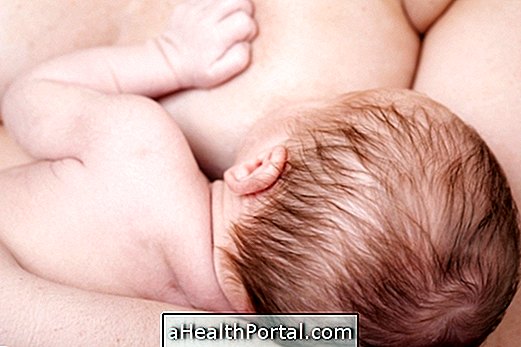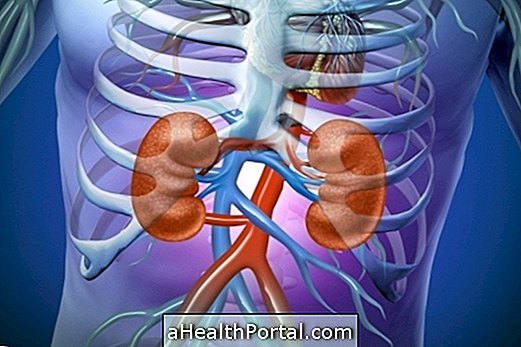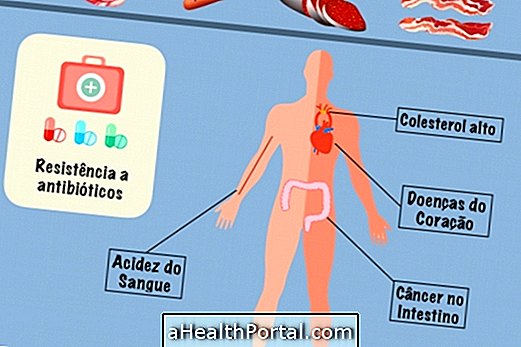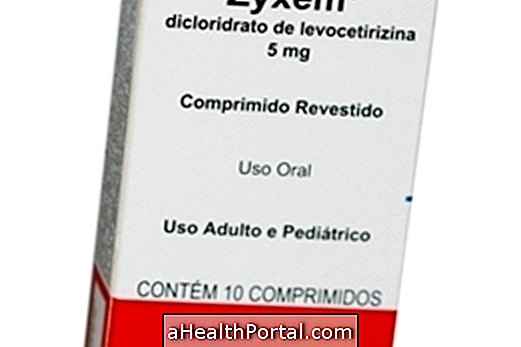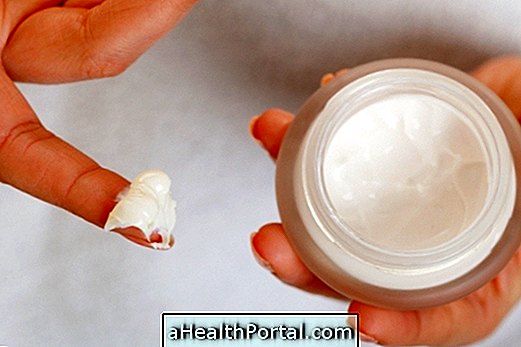Although the chances are low, it is possible to get pregnant only after unprotected intercourse, especially if the man ejaculates inside the vagina. However, pregnancy can also happen when there is only contact with the lubricating fluids released prior to ejaculation. For this reason, and although it is rarer, it is still possible to conceive without penetration, as long as the man's fluids come into direct contact with the vagina.
If unprotected sexual contact has occurred, the best way to confirm or rule out a possible pregnancy is to take the pharmacy pregnancy test. However, for the result to be reliable this test should only be done after the first day of delayed menstruation. Before this time, it is possible to do the blood test, which can be done 7 days after the relationship, but it is more expensive and needs to be done in a clinical laboratory.
Understand the types of pregnancy test and when to do it.

When there is a greater risk of getting pregnant
When a woman has a regular menstrual cycle of about 28 days, she is more likely to get pregnant when she is in the fertile period, which usually corresponds to the 2 days before and after ovulation, and usually happens around the 14th day, from the first day of menstruation. Use our calculator to know your fertile period.
Since women who have an irregular cycle, which may be shorter or longer, can not calculate the fertile period so accurately and, therefore, the risk of becoming pregnant is greater throughout the cycle.
Although there is a higher risk of getting pregnant on days approaching ovulation, a woman can also become pregnant up to 7 days before or 7 days after ovulation because sperm can live within the woman's vagina between 5 and 7 days, and there is a risk of fertilization if there is intimate contact.
Symptoms to suspect pregnancy
Some signs that may lead a woman to suspect pregnancy include:
- Delay of menstruation;
- Nausea and vomiting in the morning;
- Increased urge to urinate;
- Tiredness and lots of sleep during the day;
- Increased sensitivity in the breasts.
Take the following test and know your chances of being pregnant:
- 1
- 2
- 3
- 4
- 5
- 6
- 7
- 8
- 9
- 10
Find out if you are pregnant
Start the test


- Yes
- Not

- Yes
- Not

- Yes
- Not

- Yes
- Not

- Yes
- Not

- Yes
- Not

- Yes
- Not

- Yes
- Not

- Yes
- Not

- Yes
- Not
These symptoms do not rule out the chances of having any illness with similar symptoms, such as psychological pregnancy, and so one should always consult a gynecologist and take tests to confirm the pregnancy.
Check out a list of the first 10 symptoms of pregnancy.
Is it possible to be pregnant even without symptoms?
Yes, in many cases the woman may take up to 2 or 3 months to identify any symptoms of pregnancy. This is because many of the signs can be difficult to identify and their intensity may vary according to each woman.
When to take the pregnancy test

If the woman has had an unprotected relationship and is in the fertile time, the ideal is to test the pregnancy of urine or blood. This test should be performed after the delay of menstruation, at least 7 days after the intimate contact, so that the result is as correct as possible. The two main test options include:
- Urine test: can be bought at the pharmacy and the woman can do it at home with the first urine in the morning. If it is negative and menstruation continues late, the test should be repeated 5 days later. If the second pregnancy test is still negative and menstruation is still late, it is recommended to make an appointment with a gynecologist to investigate the situation. However, if the test is positive you should seek a blood test to confirm the pregnancy.
- Blood test : This test is done in a laboratory and detects the amount of the HCG hormone in the blood, which is released by the placenta early in gestation.
These tests are the simplest way a woman has to realize if she is pregnant.
Is it possible to be pregnant even when the test is negative?
The current pregnancy tests are quite sensitive and therefore the result is usually quite reliable, provided the test is done at the right time. However, as some women may produce few hormones early in pregnancy, the result may give false negative, especially in the case of urine testing. Therefore, when the result is negative, it is recommended to repeat the test between 5 and 7 days after the first test.
How to confirm pregnancy
The confirmation of a pregnancy is made by the doctor and for this it is necessary:
- The blood test of pregnancy give positive;
- Listen to the baby's heart, through a device called a dopone or Doppler;
- See the fetus through an ultrasound or ultrasound of the uterus.
At this stage, other signs such as bluish or purplish coloration of the vagina and vulva, enlargement of the abdomen or yellowish discharge are likely to occur. Learn about early pregnancy symptoms:





